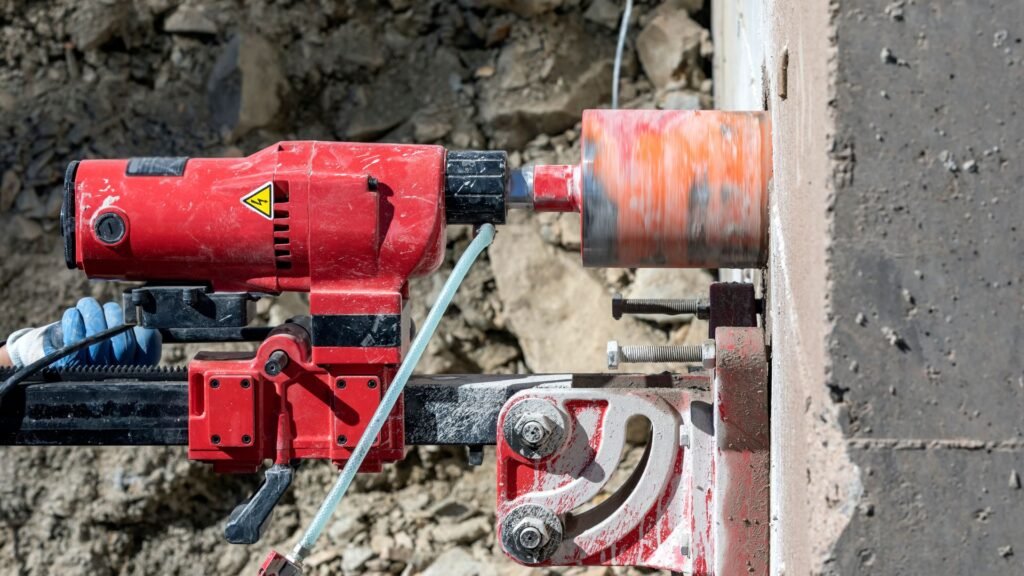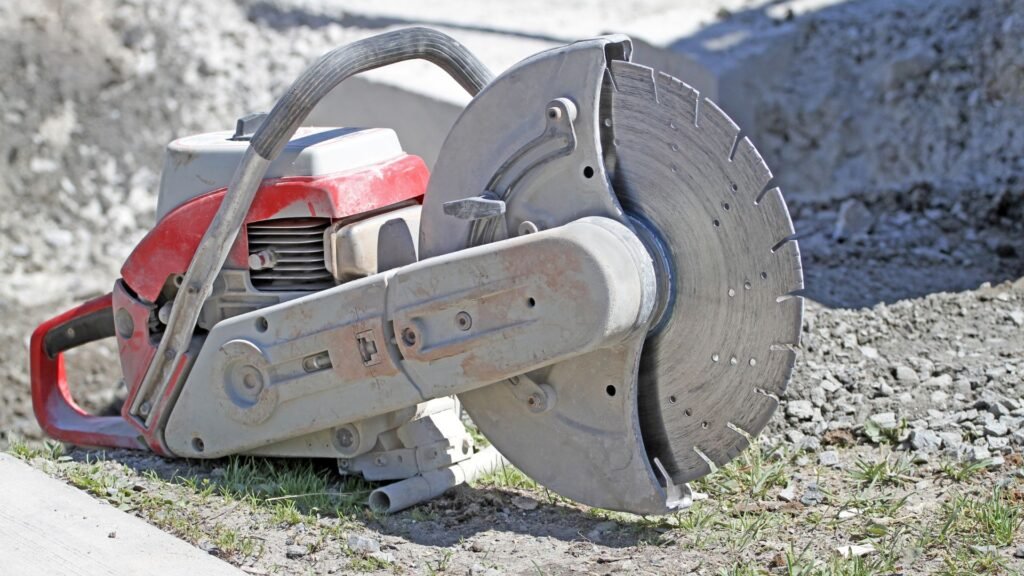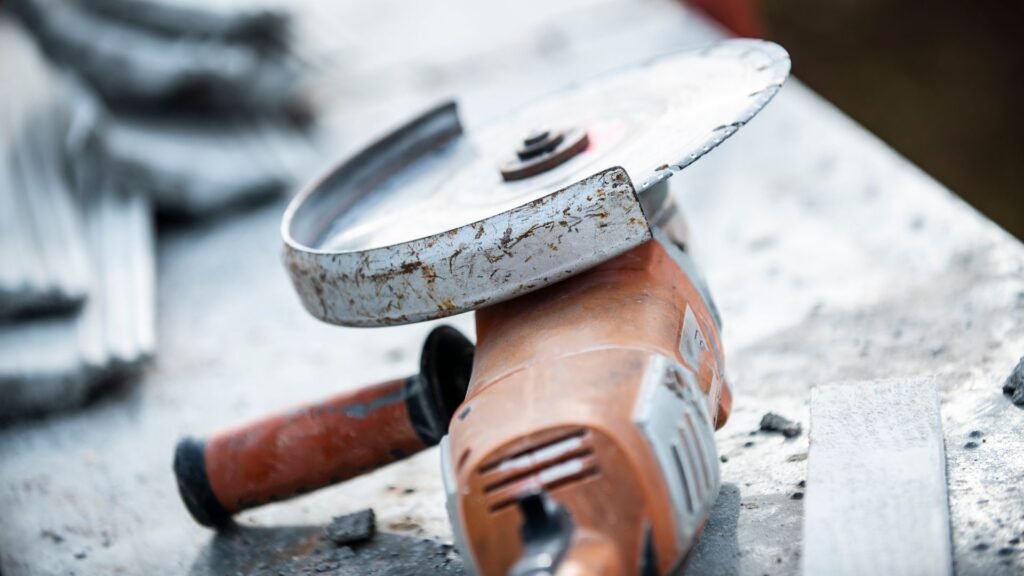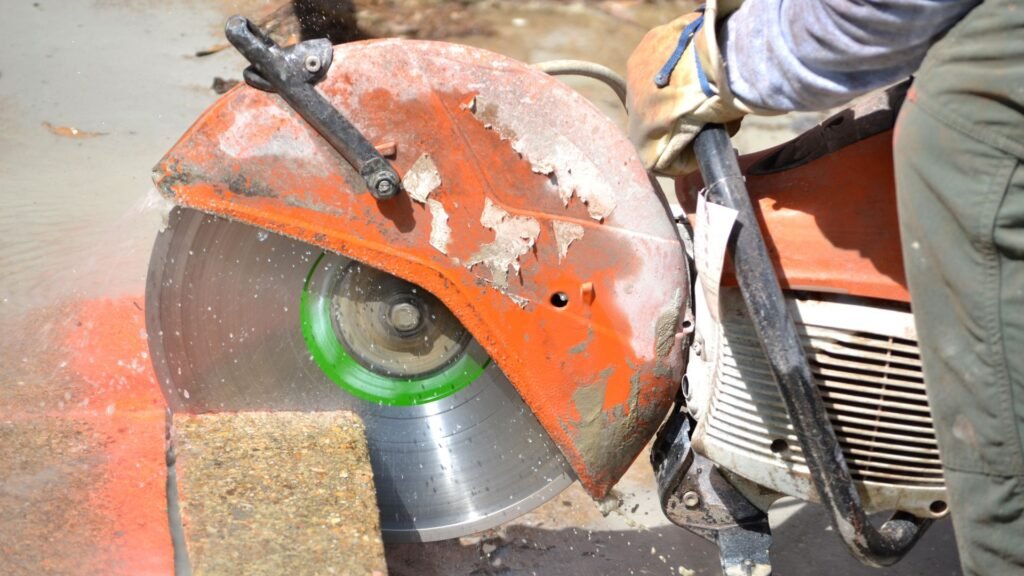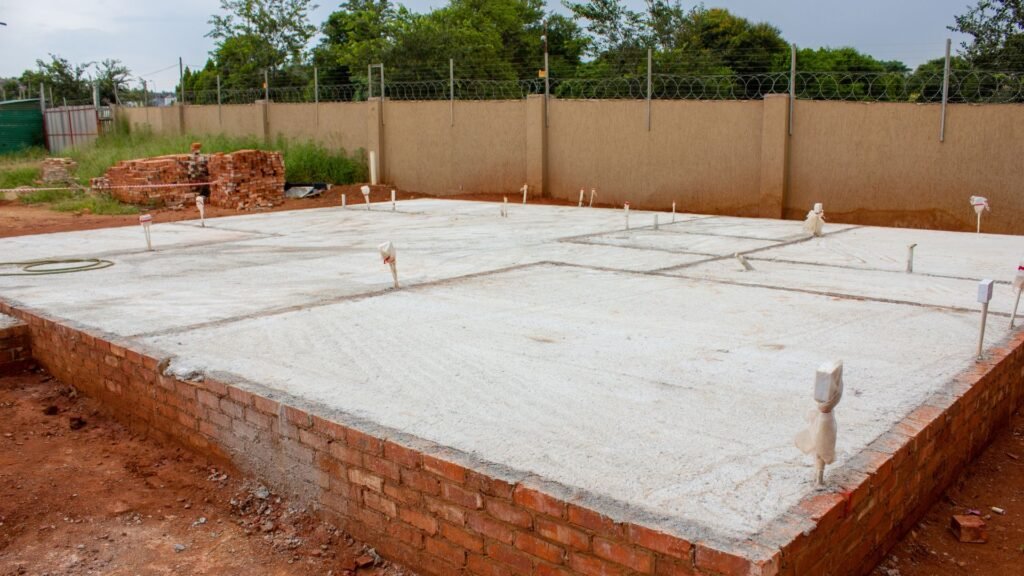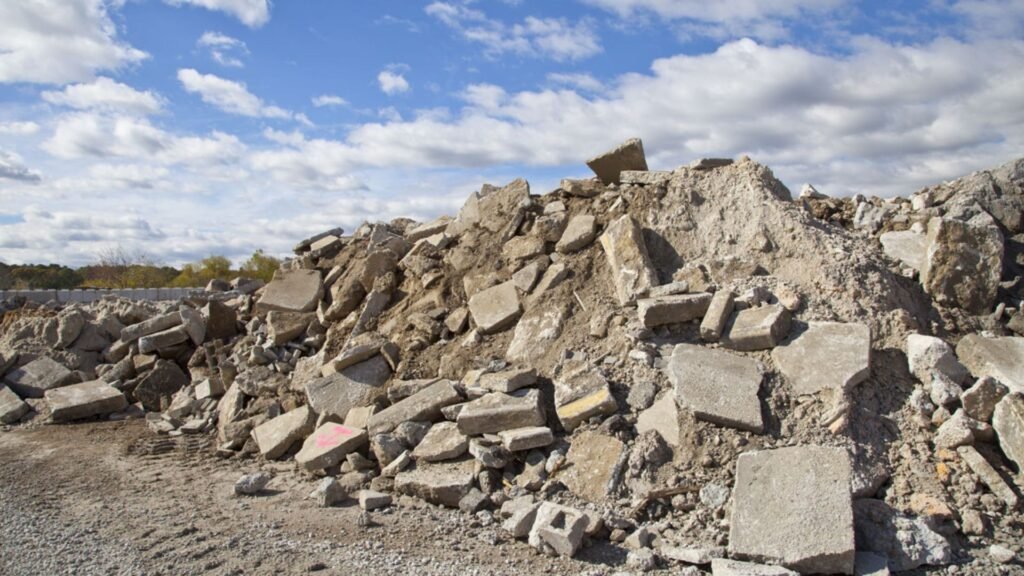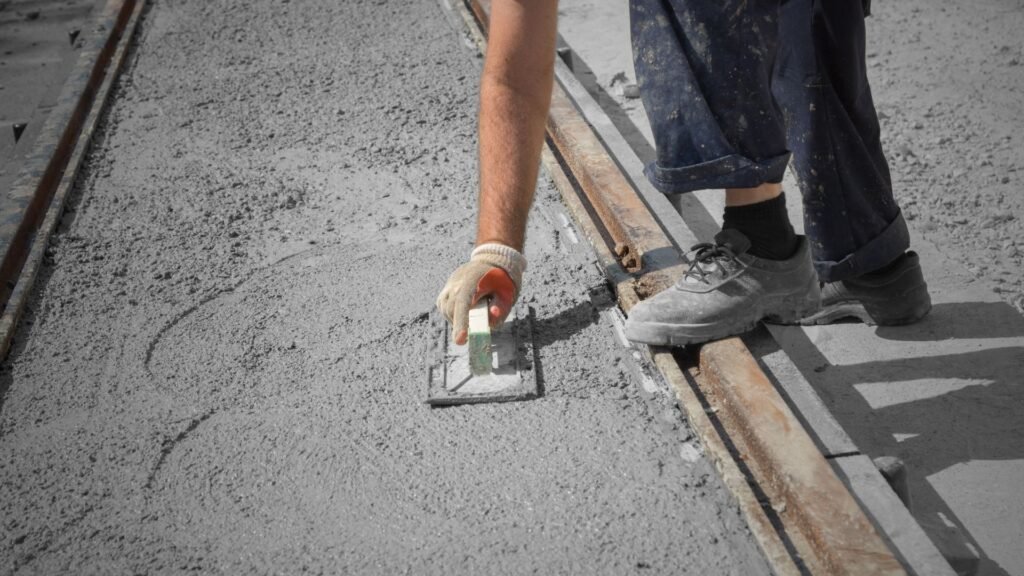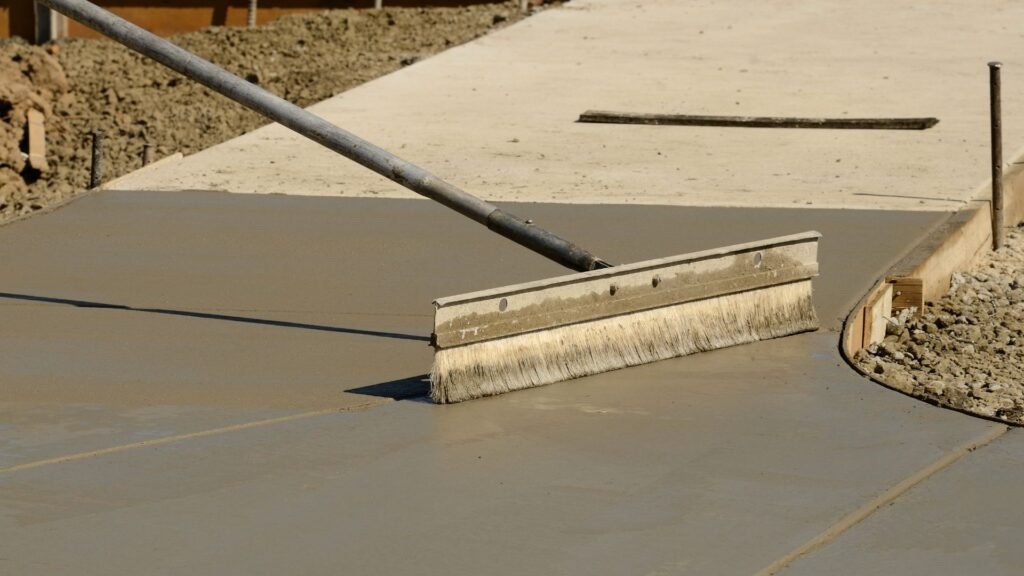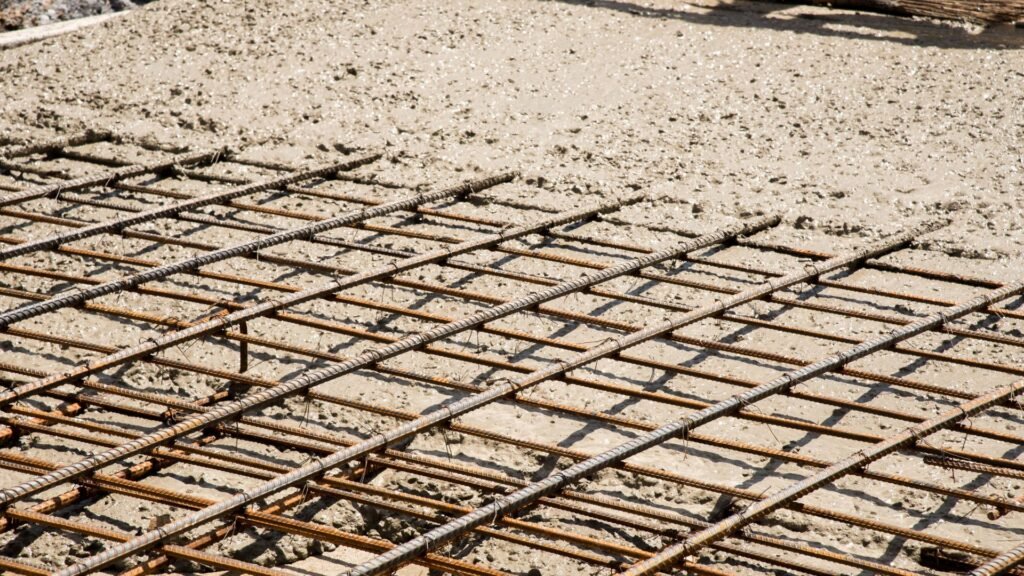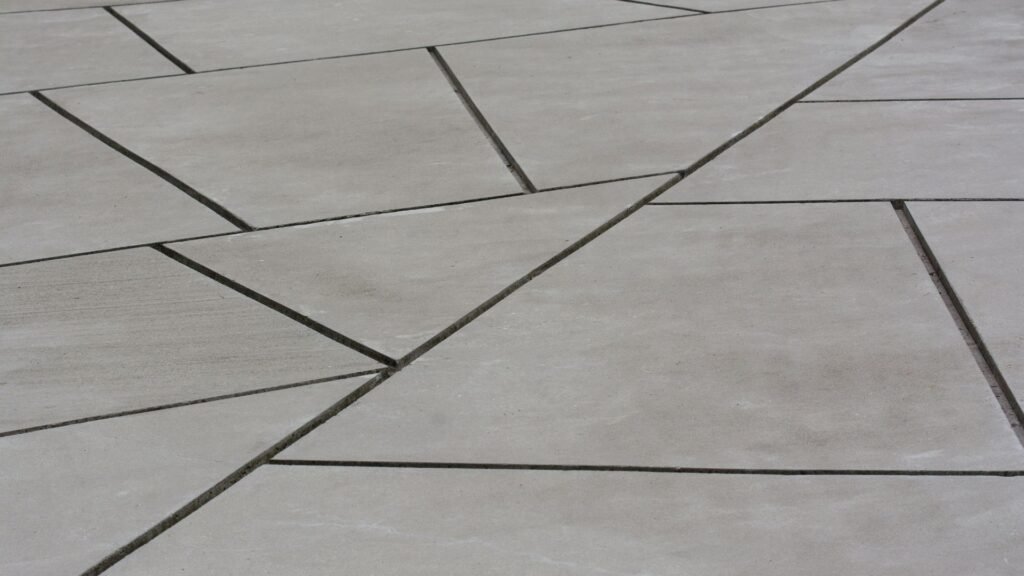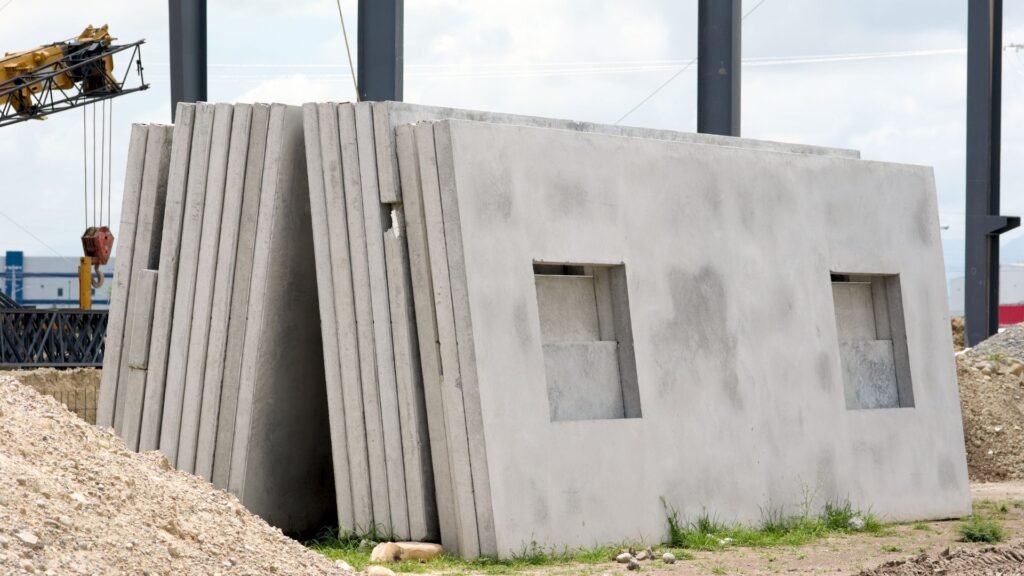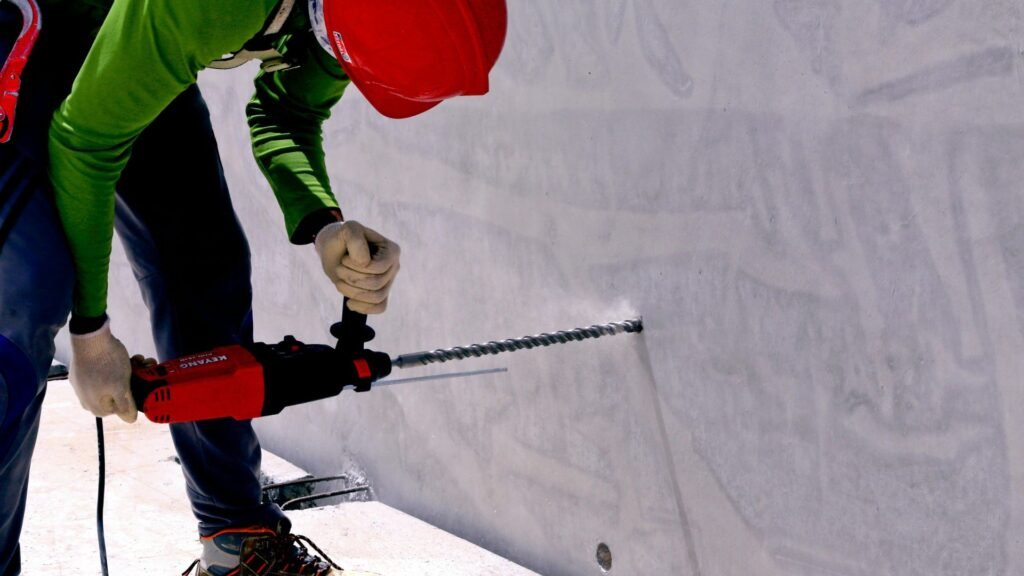Welcome to your go-to guide on understanding concrete cutting costs in NZ. Whether you’re planning a renovation, driveway fix, or new build, knowing what to expect can save you from surprise expenses. Concrete cutting isn’t just about making a few clean lines—it’s a skilled job that depends on material type, job size, location, and equipment. In this article, you’ll get a clear breakdown of average prices, what affects them, and how to avoid overpaying. Whether you’re hiring a pro or considering a DIY approach, this guide will help you make smart, informed choices.
Concrete cutting in NZ typically costs between $45 to $85 per metre for basic cuts, while core drilling can range from $60 to $150 per hole, depending on depth and diameter. Prices vary based on job size, concrete thickness, location, and access to the site. Always request detailed quotes to avoid hidden fees like disposal or minimum call-out charges.
Table of Contents
What Is Concrete Cutting?
Concrete cutting is the process of precisely slicing, drilling, or removing concrete using specialized tools. It’s used in both residential and commercial construction projects across New Zealand. Whether you’re making space for plumbing, creating access for wiring, or removing a section of a driveway, concrete cutting plays a crucial role in shaping and modifying solid structures.
Unlike general demolition, concrete cutting focuses on controlled, accurate removal. This avoids unnecessary damage, keeps the job clean, and allows for faster follow-up work. Skilled contractors use the right equipment and techniques based on the type and thickness of the concrete.
Common Use Cases In New Zealand Homes And Projects
You might need concrete cutting for many reasons. Some of the most common include:
- Driveways – Creating expansion joints, repairing cracked sections, or removing old slabs for replacement.
- Walls – Making openings for doors, windows, or vents in load-bearing or block walls.
- Flooring – Cutting into concrete floors for new plumbing lines, drainage systems, or heating installations.
- Trenches – Preparing narrow, straight cuts to install cables, pipes, or other underground utilities.
If you’re planning any kind of renovation, extension, or utility upgrade, chances are you’ll need at least some concrete cutting done.
Different Methods Of Concrete Cutting
The method used depends on your project’s needs, the concrete’s condition, and access to the worksite. Here are the three most common cutting methods in NZ:
- Saw Cutting
This is the most widely used method. A circular blade, often diamond-tipped, is mounted on a handheld or walk-behind saw. It’s ideal for cutting flat surfaces like driveways, slabs, or footpaths. - Core Drilling
Core drilling creates clean, round holes through concrete. It’s perfect for plumbing, ventilation, and electrical access. The tool removes a concrete “core” from the material with minimal damage to the surrounding area. - Wire Sawing
Used for large or thick sections of concrete, wire sawing uses a cable with diamond beads. It’s common in commercial work or when cutting through pillars, heavy beams, or reinforced concrete.
Each method requires experience and the right equipment to ensure safe, straight cuts.
When And Why You’d Need Concrete Cutting
Concrete cutting is needed when you want to change, remove, or access part of a solid structure. Here are a few real-world examples:
- Adding a new door or window? You’ll need to cut through a block or concrete wall.
- Installing a new bathroom? You may have to cut the floor slab for pipework.
- Replacing a section of driveway? Precision cutting helps isolate the damaged area.
- Need to install a drainage channel? Trench cutting makes that possible.
Whether it’s a planned upgrade or an urgent repair, concrete cutting helps avoid damage to the rest of your property while getting the job done right.

Average Concrete Cutting Costs In NZ
When planning any construction or renovation project that involves concrete, one of the first questions most people ask is: how much will it cost to cut concrete? The answer depends on the job type, location, and level of complexity. To help you set realistic expectations, here’s a detailed breakdown of average concrete cutting prices across New Zealand, including regional differences and what you’re likely to pay for different services.
Straight Cuts (Per Metre)
Straight-line cutting is the most common and straightforward concrete cutting task. It’s typically used for expansion joints, driveway cuts, or floor modifications.
Average cost:
$45 to $85 per metre
- Basic cuts on accessible flat surfaces cost closer to the lower end.
- Thicker concrete or jobs requiring precise measurements and equipment push the price up.
- Minimum call-out fees (often around $150) may apply if the total cut length is short.
Core Drilling (Per Hole)
Core drilling is used to create clean, circular holes in concrete. This is often needed for plumbing, HVAC, or electrical work.
Average cost:
$60 to $150 per hole
- Smaller diameter holes (under 100mm) are cheaper.
- Larger or deeper holes increase the cost.
- Cutting through reinforced concrete or difficult-to-access areas adds to the price.
Full Slab Cutting
When you need to cut an entire concrete slab—for removal, drainage, or replacement—the job is more intensive.
Typical cost range:
$300 to $1,000+ depending on size and thickness
- A small slab section (like a patio or shed base) might be under $500.
- Larger driveway slabs or structural floors can exceed $1,000, especially if reinforcement is present.
Removal Or Disposal Fees
Cutting the concrete is just one part of the job. If the contractor also handles disposal, expect extra charges.
Disposal cost range:
$100 to $400+, depending on volume
- Removing and transporting concrete adds time, labor, and skip bin costs.
- Some providers charge per cubic metre or per ton.
- You can save money by handling disposal yourself, if possible.
Regional Price Breakdown: Auckland Vs Christchurch Vs Wellington
Concrete cutting costs can vary by region due to labor rates, demand, and access to equipment.
| Region | Straight Cuts (per metre) | Core Drilling (per hole) | Disposal (approx.) |
| Auckland | $55 – $85 | $80 – $150 | $200 – $400 |
| Wellington | $50 – $80 | $70 – $140 | $150 – $350 |
| Christchurch | $45 – $75 | $60 – $120 | $100 – $300 |
- Auckland tends to be more expensive due to higher operating costs and traffic-related delays.
- Wellington pricing depends on site access, especially in hilly areas or tight urban zones.
- Christchurch is usually the most affordable among the three, especially for standard residential jobs.
Final Tip
When getting quotes, make sure you understand what’s included:
- Does the price cover clean-up?
- Is there a minimum fee?
- Are there extra charges for reinforced concrete or hard-to-reach spots?
Ask for an itemized quote to avoid surprise fees and make it easier to compare options. Concrete cutting is rarely one-size-fits-all, so a detailed discussion with your contractor ensures you only pay for what you need.

What Affects Concrete Cutting Prices?
Concrete cutting costs in New Zealand can vary widely—and it’s not just about how long the job takes. Several key factors come into play when a contractor puts together your quote. If you understand what influences the price, you’ll have a better chance of avoiding overcharges and getting the best value for your budget. Below is a breakdown of the main elements that can affect your total cost.
Material Thickness And Strength
The thicker and harder the concrete, the more work and time it takes to cut. For example, cutting through a thin footpath slab is faster and easier than dealing with a thick garage floor or reinforced driveway. Older concrete can also be harder due to years of curing, making it more difficult to penetrate cleanly.
If the slab contains steel mesh or rebar, the contractor will need special blades, which can increase wear on tools and slow the process. That translates to a higher cost for you.
Location And Site Access
Where the job is located and how easy it is to reach matters more than most people think. If your concrete is at the back of a tight residential property with no direct access for equipment, expect a higher quote. The crew might need to carry gear by hand or work in awkward conditions, which adds labour time.
On the other hand, if your site is clear and easy to reach with a truck or cutting saw, you could save a decent amount. Good access reduces both time and effort for the contractor.
Equipment Needed (Handheld Vs Industrial)
Not all concrete jobs require the same tools. Smaller or interior cuts might need handheld saws or low-dust tools, while driveways and commercial slabs often require larger walk-behind or wall-mounted saws. More advanced equipment comes with higher operating costs—and those get passed onto the customer.
If your project needs specialised tools like diamond-tipped blades, wet cutting setups, or heavy-duty gear, your price will reflect that.
Urgency (Standard Booking Vs Same-Day Jobs)
Like most trades, concrete cutters charge more if you need them urgently. Booking a job in advance gives them time to schedule efficiently, which usually means a lower rate.
But if you call in the morning and want the job done that same day, expect to pay a premium. Some businesses apply a same-day or after-hours surcharge, especially if it’s outside of their normal work schedule.
Waste Removal Or Extra Charges
One of the most common surprises in a concrete cutting quote is waste removal. Cutting creates heavy rubble, and not all contractors include cleanup or disposal in the base price. If they do, it might be listed as a separate charge.
Always check what’s included. If disposal is not part of the service, you may need to hire a skip bin or pay extra for the contractor to remove the concrete waste themselves.
Bonus Tip: Ask About Minimum Call-Out Fees
Even if the job is small, some companies charge a minimum fee just to come out. This is common for short jobs under an hour or basic cuts that don’t justify a full-day rate.
Before booking, ask: “Do you have a minimum call-out fee?” If your project is minor, try bundling it with other cutting or drilling tasks to get more value from a single visit.

Questions To Ask Before Hiring A Concrete Cutter
Hiring a concrete cutting contractor in New Zealand isn’t just about finding the lowest price. It’s about making sure you’re working with someone reliable, experienced, and upfront with their pricing. Before you agree to anything, ask the right questions to avoid hidden fees, delays, or poor workmanship. Here’s what you should bring up during that first call or quote request.
Do You Charge By Metre, Hour, Or Job?
This is one of the most important questions to ask upfront. Some contractors charge per metre for straight cuts, others charge hourly, and some offer a flat rate for the entire project. Each pricing model can affect your final cost, especially if the job takes longer than expected or if there are unforeseen complications.
For example, if a contractor charges per hour and the concrete turns out to be thicker or reinforced, you could end up paying more than expected. On the other hand, per metre pricing is more predictable for straightforward jobs. Always ask for a detailed breakdown of what’s included in the rate to avoid surprises.
Is Cleanup And Disposal Included?
Concrete cutting creates a lot of debris—dust, chunks of concrete, slurry if wet cutting is used, and sometimes even hazardous material depending on the age and condition of the concrete. Don’t assume cleanup is part of the package.
Ask if the contractor includes site cleanup and waste disposal in their quote. If not, you’ll need to factor in the cost of hiring a skip bin or paying extra labour charges. This one detail can easily add hundreds of dollars to your project if you’re not prepared.
Do You Offer Fixed Quotes?
A fixed quote means you’ll know exactly how much the job will cost, regardless of unexpected changes during the project. It gives you peace of mind and protects your budget. Some contractors only provide estimates, which can change based on job complexity or site conditions.
Ask for a written quote, not just a verbal estimate. Make sure it covers all aspects of the job: cutting, equipment, labour, travel, GST, and cleanup. If possible, ask the contractor to visit the site before quoting. This will lead to a more accurate and fair price.
What Safety Measures Do You Follow?
Concrete cutting can be dangerous. There are sharp blades, dust particles, high-powered tools, and potential structural risks—especially when cutting into walls or near utility lines.
A professional contractor should be able to explain what safety protocols they follow. This might include:
- Dust control measures like wet cutting or vacuums
- Personal protective gear for the team
- Barriers or signage for public areas
- Clear communication during noisy or hazardous parts of the job
Contractors who take safety seriously are more likely to handle your project with care and professionalism.
Can I See Past Work Or Reviews?
This is your filter for quality. Any reputable contractor should be happy to share examples of their past projects or direct you to client testimonials and reviews.
Look for:
- Before-and-after photos of similar jobs
- Reviews on Google or Facebook
- Client references if available
This helps you gauge their experience, especially with jobs similar to yours—whether it’s residential driveway cutting, floor sawing, or core drilling.

DIY Vs Hiring A Pro: Is It Worth It?
When planning a concrete cutting project, one of the first decisions you’ll face is whether to do it yourself or hire a professional. On the surface, DIY might seem like the cheaper option—but there are important trade-offs to consider. From safety concerns to quality of work, the choice can impact both your budget and the final result.
Pros Of Hiring A Contractor
Clean And Accurate Cuts
Professional concrete cutters use specialized tools that produce precise, straight lines with minimal chipping. This matters if you’re cutting concrete for aesthetic reasons, like exposed flooring or sharp edges for a new installation.
Better Safety Standards
Concrete cutting is not risk-free. Pros are trained to handle dust, sharp tools, flying debris, and noise exposure. They follow safety protocols and wear proper gear, reducing the chances of injury.
Time Savings
Contractors know how to plan, measure, and cut efficiently. What could take you an entire weekend may take a pro just a few hours. Time saved often equals money saved, especially if your time has value elsewhere.
All-In-One Service
Most contractors include cleanup, removal, and waste disposal as part of their service. That saves you from hiring extra help or renting bins.
Risks Of DIY Concrete Cutting
Wrong Or Inadequate Tools
Concrete cutting isn’t something you can do well with a standard saw. If you use the wrong blade or underpowered gear, you risk overheating the tool or damaging the surface. Worse, you could end up stopping mid-job and needing to call a pro anyway.
Poor Results
Uneven lines, jagged edges, or broken corners can all result from an inexperienced hand. That not only affects the look but can also make future construction harder or more expensive.
Health And Safety Hazards
Cutting concrete releases fine dust particles that can be harmful if inhaled. Without proper protective gear and ventilation, you put your health at risk. There’s also the risk of electric shock, blade kickback, or flying debris if something goes wrong.
Unexpected Costs
Even if you think you’re saving money, costs can add up—tool rentals, safety equipment, diamond blades, and disposal fees can easily exceed what a contractor might charge for a simple job.
Equipment Rental Costs Vs Paying A Pro
Renting a concrete saw in NZ can cost anywhere from $100 to $200 per day. That doesn’t include the cost of blades, safety gear, or transportation. In contrast, hiring a professional for a basic residential cut might start around $250–$400 total, depending on size and location.
When you factor in time, setup, risk, and cleanup, the price gap often narrows or even disappears. Hiring a pro also means less stress, fewer mistakes, and a more polished finish.
When DIY Makes Sense—And When It Doesn’t
DIY is reasonable for small, low-risk jobs—like trimming a garden slab or cutting a single concrete paver. If you’re confident in using tools and the cut doesn’t affect structural integrity, it may be worth trying.
But if the job involves structural concrete, large slabs, internal walls, or working near plumbing and electrical lines, leave it to the experts. Mistakes in those situations can be costly or dangerous.
Bottom line: DIY might save a few dollars upfront, but hiring a professional often pays off in safety, speed, and quality. Before making a decision, compare quotes and be honest about your tools, skills, and time.

How To Save On Concrete Cutting In NZ
Concrete cutting can be a necessary part of home renovations, repairs, or construction projects—but that doesn’t mean it has to break the bank. If you’re planning a job and want to avoid overspending, there are several smart ways to keep your costs down without sacrificing quality. Here’s how to save on concrete cutting in NZ while still getting professional results.
Book In Off-Peak Seasons
Timing matters. Just like any other trade, concrete cutting businesses experience busy and quiet periods throughout the year. Spring and summer are often high-demand seasons when prices can be higher due to tight schedules. If your project allows for flexibility, consider booking during the colder months or early in the year when work tends to slow down. Contractors are more likely to offer discounts or be open to negotiation when demand is lower.
Bundle With Other Services
If you need additional services like core drilling, surface grinding, or concrete removal, it’s more cost-effective to bundle them with your cutting job. Many companies offer package pricing or discounts for multiple services in one visit. It saves time and travel for the contractor—and those savings can be passed on to you. Always ask if bundling services could reduce your overall quote.
Compare 2–3 Quotes
Never settle for the first quote you receive. Pricing can vary widely between providers, depending on their tools, experience, and workload. By collecting at least two or three quotes, you’ll get a clearer picture of what the job should cost. Look beyond the bottom line—check what’s included in each quote, such as disposal fees or GST, and ask for clarification if anything is vague.
Prep The Area In Advance
Time is money in any job. If the contractor has to spend time moving obstacles, clearing the site, or dealing with poor access, your final cost may go up. Before the crew arrives, clear the work area of furniture, debris, or anything else in the way. If possible, mark the cut lines or provide clear instructions. The more prepared the site is, the less time they’ll spend setting up—and that means lower labour charges.
Ask About Hourly Vs Per-Job Pricing
Concrete cutting can be priced either per metre, per hour, or per project. In some cases, one method may be significantly cheaper than the others. For example, if you only need a small section cut, a per-job or hourly rate may be more affordable than a per-metre charge. Always ask how the contractor calculates pricing and request both hourly and fixed quotes for comparison. Then choose the option that works best for your project and budget.
Saving on concrete cutting in NZ isn’t about cutting corners—it’s about making informed choices. By planning ahead, comparing prices, and asking the right questions, you can reduce your total spend while still getting high-quality work from experienced professionals.

Common Mistakes That Cost You More
When it comes to concrete cutting in NZ, the total cost of your project can quickly add up—especially if you make simple mistakes that many homeowners overlook. Being aware of these pitfalls can help you avoid surprise charges and make smarter decisions. Below are some of the most common issues that end up costing more than expected.
Not Checking If Removal Is Included
Many people assume that concrete cutting services include the removal and disposal of the concrete waste. That’s not always the case. Some companies only handle the cutting and leave the cleanup to you—or charge extra for it.
Before you agree to a quote, ask whether removal and disposal are included in the total price. If it’s not part of the service, you’ll need to arrange for a skip bin or haul the debris yourself, which could cost you anywhere from $100 to $300 depending on volume and location. Always clarify this upfront to avoid extra hassle and expenses.
Ignoring Council Permits For Certain Cuts
If your project involves cutting into public paths, driveways that connect to the road, or near utility lines, you might need a permit from your local council. Ignoring this step can lead to fines or delays.
Council permits can take a few days to process, and failing to get one could mean legal trouble or even needing to redo the work at your own expense. To avoid penalties, always check local regulations before any cutting begins. If you’re unsure, your contractor should be able to guide you on whether a permit is required.
Choosing The Cheapest Quote Blindly
Everyone wants to save money, but the cheapest quote isn’t always the best deal. Some low-cost providers cut corners—literally and figuratively. They may use substandard equipment, skip safety precautions, or leave you with a rough finish that needs fixing.
Look beyond the price. Check for reviews, qualifications, and past work. Ask what’s included in the quote, such as cleanup, travel costs, and minimum charges. A slightly higher price from a trusted provider often saves you money in the long run by avoiding rework or damage.
Forgetting To Factor In GST Or Travel Fees
Some quotes may look attractive on paper but don’t include GST (Goods and Services Tax) or travel costs. That can add 15% or more to your bill, depending on how far the team needs to travel.
To avoid this surprise, always ask if the quote is GST-inclusive and whether any travel fees apply. This is especially important if you live outside major centres like Auckland, Wellington, or Christchurch, where companies may charge extra for remote jobs. A clear breakdown of all fees helps you stay on budget and make fair comparisons between providers.
Avoiding these mistakes not only saves you money but also ensures your concrete cutting project goes smoothly from start to finish. Always ask questions, compare detailed quotes, and work with professionals who are upfront about every cost.
Looking for trusted concrete cutting services in NZ? Get a fast, no-obligation quote from local pros who do the job right. Visit our Concrete Cutter Auckland to get started

FAQs: About Concrete Cutting Cost In NZ
How much does concrete cutting cost per metre in NZ?
Concrete cutting typically costs between $45 and $85 per metre for standard straight cuts. Prices vary based on concrete thickness, access, and region.
What factors affect concrete cutting prices in NZ?
Key factors include the type and thickness of the concrete, site accessibility, job size, equipment used, and whether disposal or cleanup is included.
Are there extra fees beyond the cutting cost?
Yes. Extra fees may include travel charges, waste removal, minimum call-out fees, GST, and after-hours or urgent service surcharges.
Is core drilling more expensive than straight cuts?
Yes. Core drilling usually ranges from $60 to $150 per hole, depending on diameter and depth. It’s more precise and equipment-intensive.
Can I cut concrete myself to save money?
DIY is possible for small, simple jobs. However, without the right gear or skills, you risk damaging the concrete or injuring yourself. For larger jobs, hiring a pro is safer and often more cost-effective.
Do I need a permit for concrete cutting work?
In some cases, yes—especially if you’re cutting into public footpaths, driveways, or near utilities. Always check with your local council before starting work.
Is cleanup included in the cost?
Not always. Some contractors include cleanup and disposal in their quotes, while others charge separately. Ask before booking.
How long does a typical concrete cutting job take?
Most small residential jobs can be completed in a few hours. Larger or complex jobs may take a full day or longer, depending on access and preparation.
Does concrete cutting create a lot of dust and noise?
Yes. Concrete cutting is noisy and generates dust. Professionals often use wet cutting techniques and dust control tools to reduce the mess.
How can I get an accurate quote for my project?
Provide clear details: size and type of concrete, job location, preferred timeline, and whether you need removal included. Request written quotes from at least two providers to compare.
Conclusion
Concrete cutting isn’t a one-size-fits-all service, and the cost can vary widely depending on several factors like job size, concrete thickness, equipment needed, and your location in New Zealand. That’s why doing a bit of homework before you commit can save both time and money in the long run. Start by understanding what kind of cutting you need, then compare quotes from two or three local providers to get a clear picture of the market rate. This helps you avoid hidden fees and ensures you’re getting value for what you’re paying. Whether you’re planning a small driveway cut or a large-scale commercial job, knowing the basics of concrete cutting costs gives you a stronger position when hiring a contractor. If you’re ready to move forward, now’s a great time to connect with a trusted local provider and request a quote that fits your needs.




